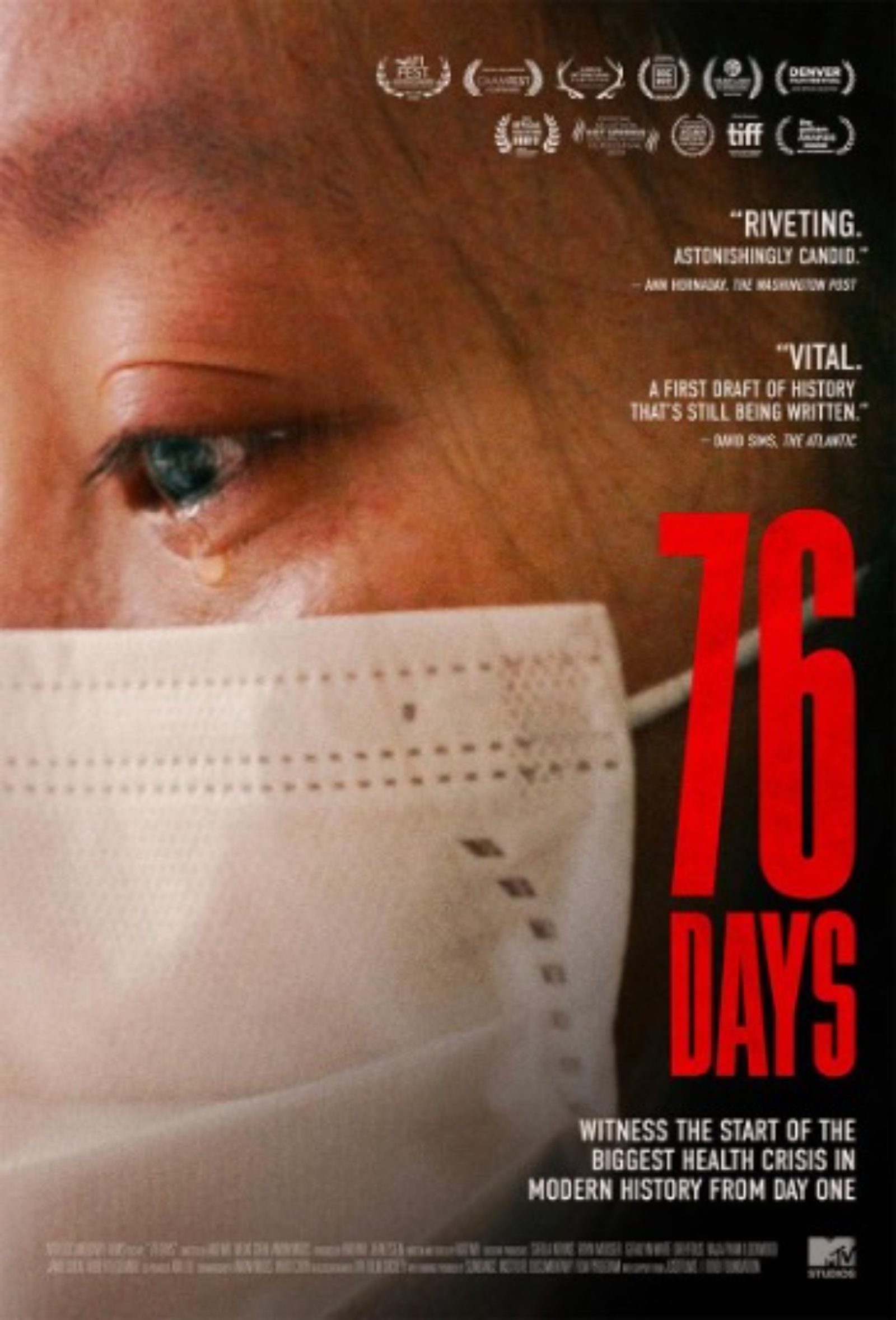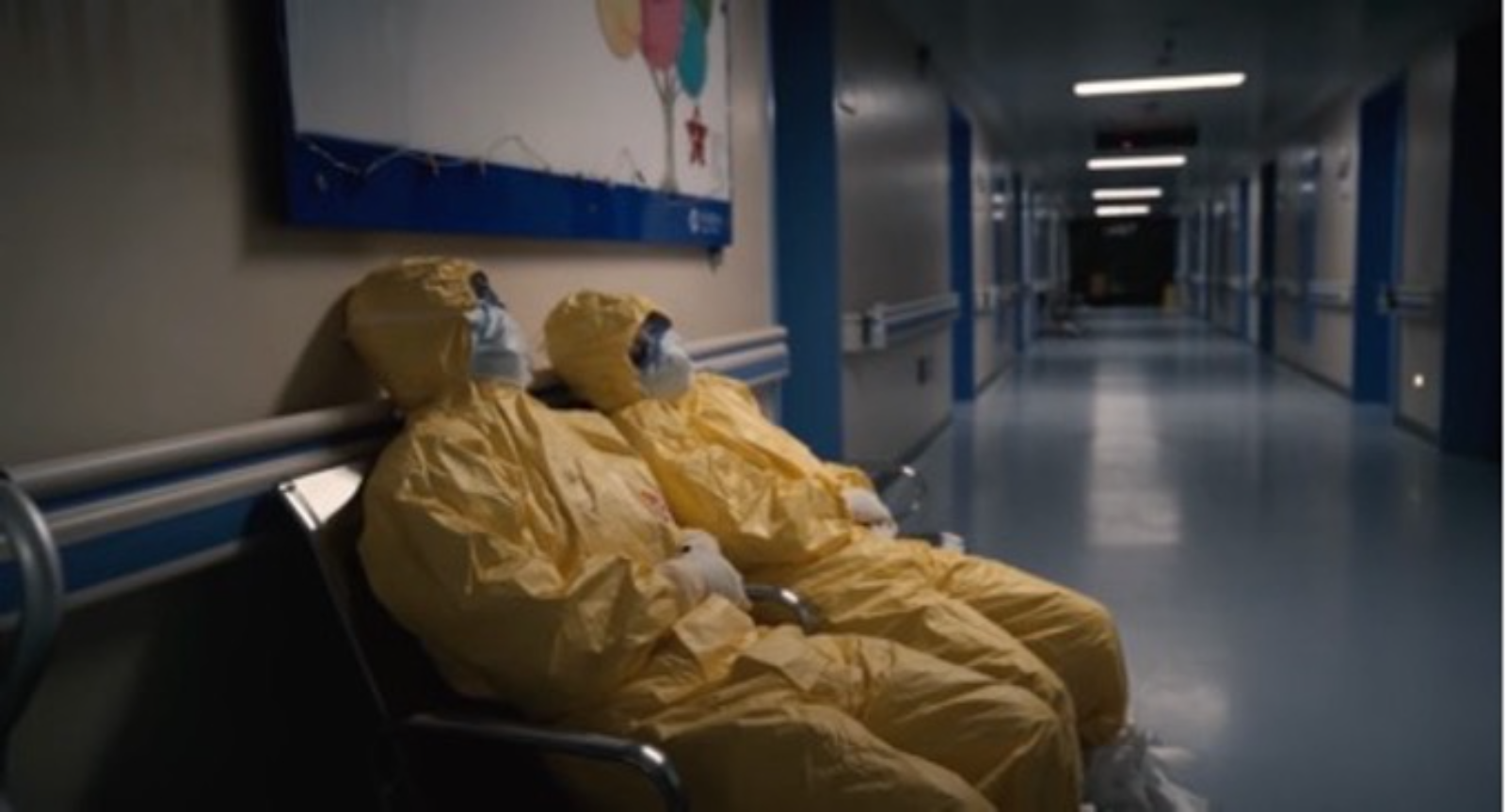Premiered at TIFF in September 2020 and received with critical acclaim, 76 Days is a documentary film co-directed by Chinese American film director Hao Wu, Weixi Chen, and an anonymous third. The documentary chronicles the early days of the COVID-19 pandemic inside four hospitals in Wuhan, capturing the struggles of patients and frontline medical professionals battling the disease outbreak. Shot in the style of observational cinema, the 93-minute intense juxtaposition of raw and intimate footage (which was independently and immersively recorded by Chen and the director credited as anonymous) is in itself not didactically expository. Rather, documentary presents an unscripted narrative that offers a poignant historical glimpse into the endurance, fragility, desperation, dedication, and the stark realities of life and death within the impersonal walls of overcrowded hospitals during an unprecedented health crisis.
The documentary presents a series of COVID vignettes: an elderly fisherman, distrustful of medical procedures, wanders aimlessly through the hospital; family members, fearing infection, refuse to take their grandfather home; an elderly couple in separate care units anxiously miss each other; a Christian woman clings to her faith, praying for the well-being of patients and healthcare workers; an infected pregnant woman is forcefully separated from her newborn immediately after birth; nurses painstakingly collect the belongings of the deceased to return to their families, saying, “We did our best”; and countless, countless deaths. The documentary is extremely candid, showcasing the utmost strength and vulnerability of humanity in these fragments of hospital happenings, fragments of pandemic life; although its honest approach also raises questions about patient privacy and documentary ethics. The sole perspective of hospitals is prone to a certain narrative restriction, but it also presents the most straightforward and authentic reflection on the pandemic, amplifying personal stories that might otherwise remain untold or forgotten, and having them embedded them in the viewer’s collective memory of this recent crisis.
“Are you happy going home tomorrow?” / “I am happy, are you not happy?” / “Will you miss us when you get home?” / “You must miss us and make Hot Dry Noodle for us one day” / “OK. OK” / “We’ll mail you Vermicelli with Duck Blood” / “Good!” (01:14:24-01:14:42). This bittersweet exchange about food between the volunteer nurses from Nanjing and an elderly Wuhan patient before his discharge from the hospital demonstrates a moment of tender reality humanity amidst crisis: while global media framed COVID-19 through statistics and policy debates, actual lived experience consisted of these fleeting moments where caretakers and patients reaffirmed their shared humanity through inside jokes and food memories. The film’s power, therefore, comes from its rejection of pandemic grand narratives. It preserves many countless minor yet vital interactions that collectively compose the real experience of COVID-19, not as an abstract crisis but as a mosaic of individual adaptations to collective trauma.
 ,
,  , and
, and 
Image Captions:
Image 1. Promotional poster of 76 Days. MTV Documentary Films. Image via https://imdb.to/3HfebzD.Image 2. Exhausted frontline healthcare workers resting in the hospital hallway. Screenshot of film still, 76 Days, directed by Hao Wu, Weixi Chen, and Anonymous, 2020.
Image 3. 31 unread messages from a deceased patient’s phone. Screenshot of film still, 76 Days, directed by Hao Wu, Weixi Chen, and Anonymous, 2020.
Citation: 76 Days. Directed by Hao Wu, Weixi Chen, and Anonymous. MTV Documentary Films, September 2020. DOCUMENTARY | CHINA, US. yc
Source Type: Film and Theatre
Country: China
Date: 14-Sep-2020
Keywords: Film Documentary, Wuhan, Outbreak, Hospital, Life, and Death